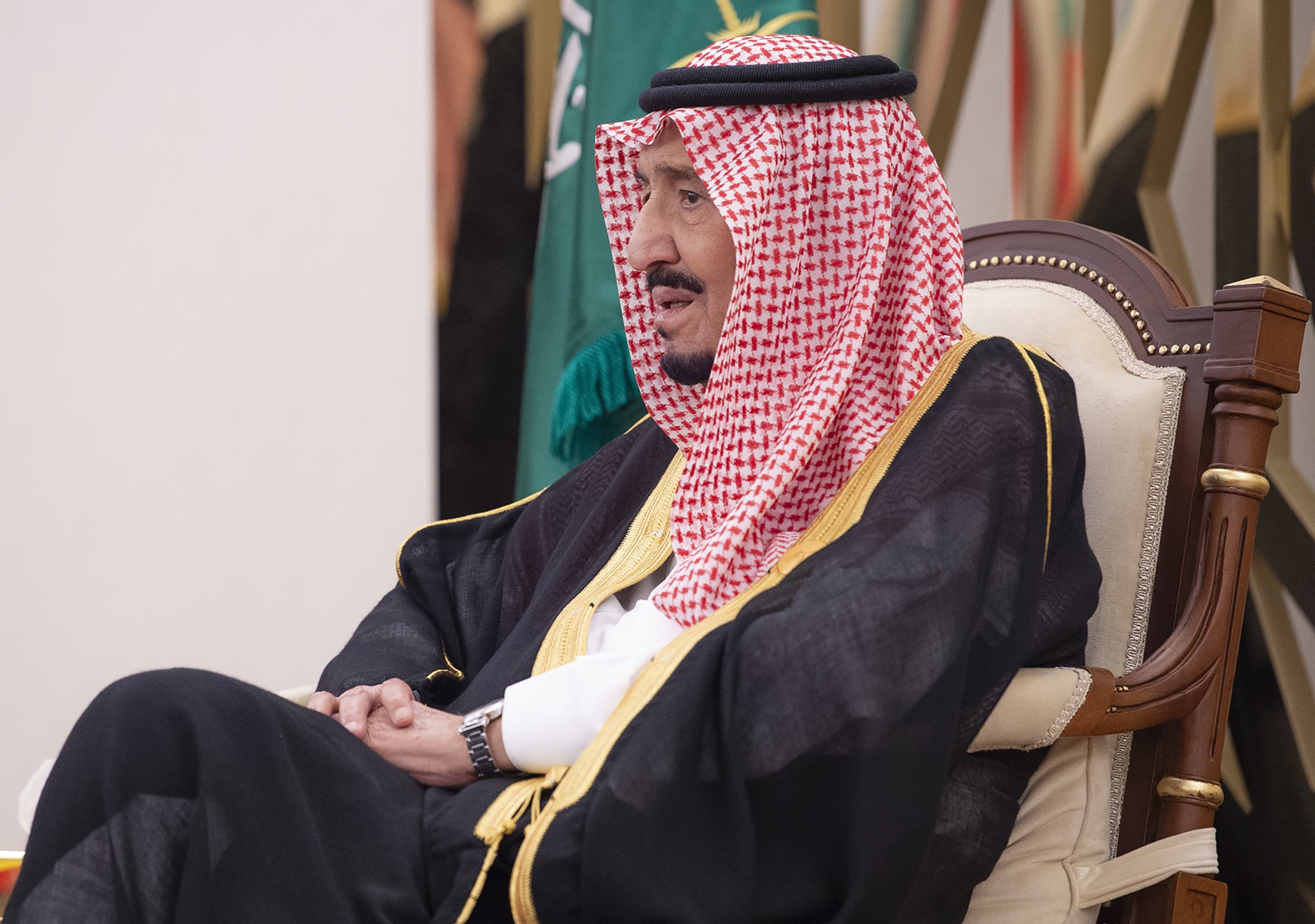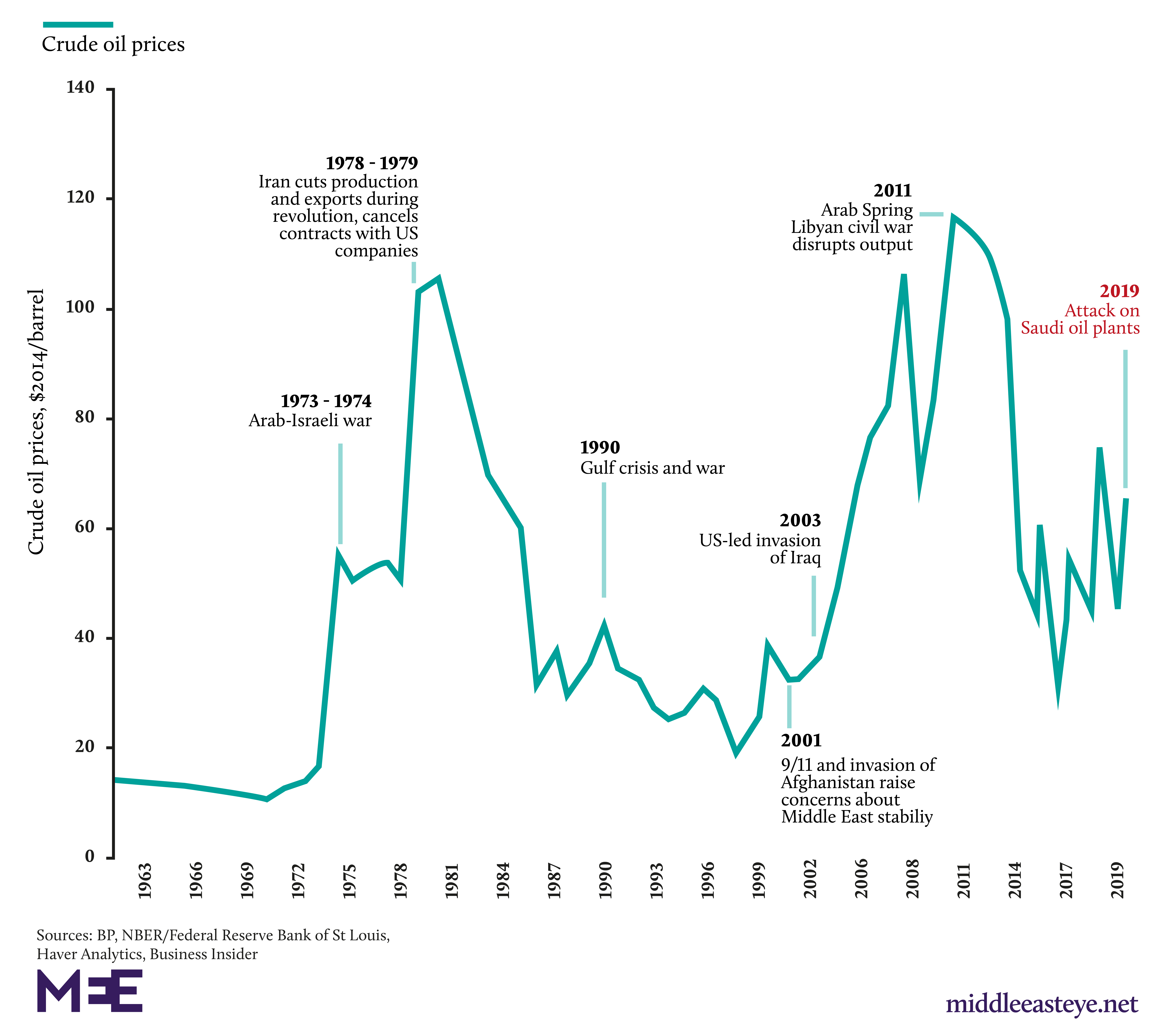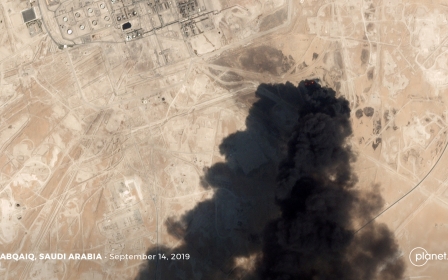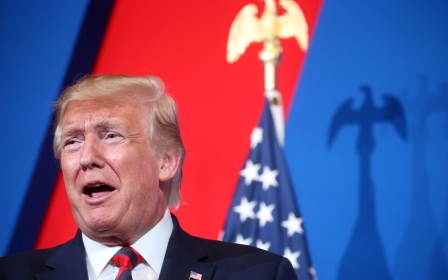Saudi King Salman calls for international response to oil facility attacks

Saudi Arabia's King Salman on Tuesday called for an international response to what he described as "cowardly attacks" targeting oil facilities in the Gulf state which have been widely linked to Iran.
In a statement released following a weekly cabinet meeting, the ruler said that the international community needed "to shoulder its responsibility in condemning the perpetrators" by "clearly confronting" those behind Saturday's attacks which targeted two Saudi Aramco sites, Abqaiq and Khurais, in eastern Saudi Arabia.
Details about the attacks, which were initially claimed by Houthi rebels battling the Saudi-led coalition in Yemen, remain unclear.
Iraqi intelligence sources told Middle East Eye on Sunday that the attacks were carried out by Iranian drones launched from southern Iraq.
US media reported on Monday that American officials had shared intelligence with Riyadh indicating that Iran was the staging ground for the attacks, with the Wall Street Journal reporting that US officials had determined that "Iran launched more than 20 drones and at least a dozen missiles".
New MEE newsletter: Jerusalem Dispatch
Sign up to get the latest insights and analysis on Israel-Palestine, alongside Turkey Unpacked and other MEE newsletters
"But Saudi officials said the US didn't provide enough to conclude that the attack was launched from Iran, indicating the US information wasn't definitive," the WSJ added.
"US officials said they planned to share more information with the Saudis in the coming days."
President Donald Trump has said that the United States is ready to help Saudi Arabia, but will wait for a "definitive" determination on who was responsible.
"I'm not looking to get into new conflict, but sometimes you have to," he said. "That was a very large attack, and it could be met by an attack many, many times larger.
"Certainly, it would look to most like it was Iran."
Iran has denied carrying out the attacks, with President Hassan Rouhani saying on Monday that the attacks were a consequence of the Houthis "exercising their legitimate right of defence".
On Tuesday, Iranian Supreme Leader Ayatollah Ali Khamenei ruled out any negotiations with the US and condemned Washington's policy of "maximum pressure" against the country.
"The policy of 'maximum pressure' against the Iranian nation is worthless and all Islamic Republic of Iran officials unanimously believe there will be no negotiations with the US at any level," he said, quoted on his official website.
Riyadh has said Iranian weapons were used, but stopped short of blaming Tehran directly.
The UK and Germany on Tuesday called for the international community to forge a "collective response" to the attacks, but also emphasised the "importance of avoiding the further escalation of tensions in the region".
Oil prices, which have spiked since Saturday's attacks, eased by five percent on Tuesday amid hopes that Saudi production could recover quicker than initially expected.
But OPEC and industry sources told the Reuters news agency on Tuesday that Saudi Arabia had yet to brief fellow OPEC members and other energy sector players about how long it will take to restore the country's oil output as the kingdom tries to assess damage from the attacks.
Damage to the oil facilities will cut the kingdom's output by 5.7 million barrels per day, state-run producer Saudi Aramco said.
But Energy Minister Prince Abdulaziz bin Salman on Tuesday said Saudi Arabia will restore its lost oil production by the end of September, Reuters reported.
Earlier on Tuesday the Saudi government issued an order to all preachers in various regions and governorates of the kingdom to allocate a sermon during Friday prayers to address the attacks on the oil plants.
The Saudi Press Agency said the sermons were to be aimed at raising awareness "about the dangers facing our country at home and abroad" and to call for Saudi citizens to "rally around their leadership and work for the benefit of their homeland".
Middle East Eye delivers independent and unrivalled coverage and analysis of the Middle East, North Africa and beyond. To learn more about republishing this content and the associated fees, please fill out this form. More about MEE can be found here.





